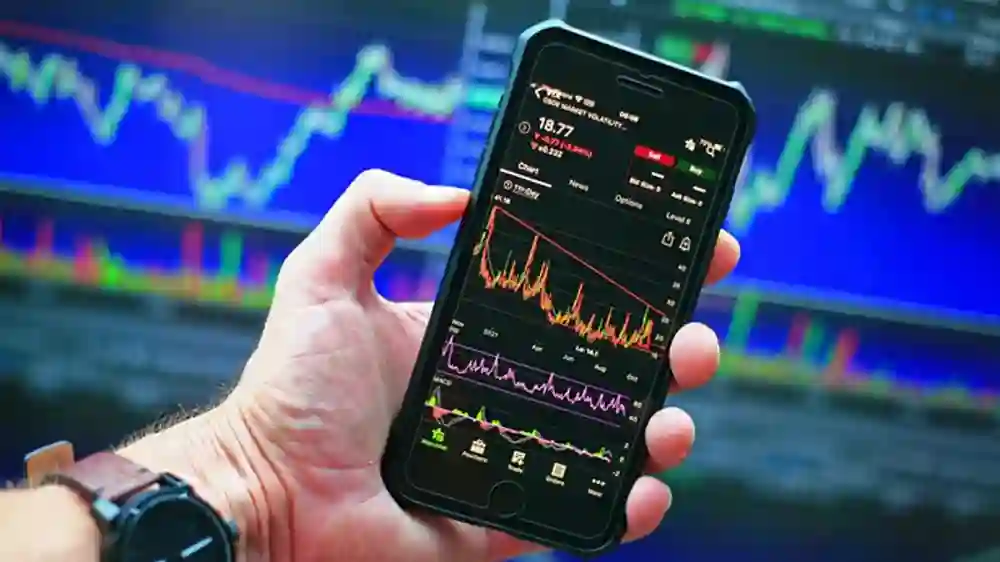In the fast-paced world of Forex trading, staying ahead of the curve requires access to advanced technology and infrastructure. Cloud computing has emerged as a powerful tool for Forex robot traders, offering scalability, flexibility, and cost-effectiveness in managing trading operations. This article explores the benefits of cloud computing for Forex robot traders, highlighting key advantages and considerations for leveraging cloud-based solutions in Forex trading strategies.
The Evolution of Forex Trading and Technology:
Forex trading has undergone a significant transformation in recent years, driven by advancements in technology and connectivity. Gone are the days of manual trading and paper-based transactions; today’s Forex markets are powered by sophisticated algorithms, high-speed internet, and real-time data feeds. Forex robot traders, also known as expert advisors (EAs), automate trading processes, executing trades based on predefined rules and criteria without human intervention.
The Role of Cloud Computing in Forex Trading:
Cloud computing has revolutionized the way Forex traders manage their operations, providing access to scalable computing resources, storage, and applications over the internet. Rather than relying on traditional on-premises infrastructure, Forex traders can leverage cloud-based solutions to execute trades, analyze market data, and monitor performance from anywhere in the world. Cloud computing offers several benefits for Forex robot traders, including:
Scalability and Flexibility:
Cloud computing enables Forex traders to scale their computing resources up or down based on changing market conditions and trading demands. Whether executing a high-volume trading strategy or conducting data-intensive analysis, cloud-based solutions can dynamically allocate resources to meet evolving needs without the need for costly hardware upgrades or infrastructure investments.
Accessibility and Mobility:
Cloud-based Forex trading platforms provide traders with anytime, anywhere access to their trading accounts and tools. Whether using a desktop computer, laptop, tablet, or smartphone, traders can log in to their cloud-based platforms and manage their trades on the go. This level of accessibility and mobility is particularly advantageous for Forex traders who travel frequently or prefer to trade from multiple devices.
Cost-Effectiveness:
Cloud computing offers a cost-effective alternative to traditional on-premises infrastructure, eliminating the need for upfront capital expenditures and ongoing maintenance costs. Forex traders can pay for only the computing resources they use, avoiding over-provisioning and underutilization of hardware resources. Additionally, cloud-based solutions often offer subscription-based pricing models, allowing traders to scale their operations while keeping costs predictable and manageable.
Reliability and Redundancy:
Cloud computing providers offer robust infrastructure and redundancy measures to ensure high availability and data integrity. By hosting Forex trading platforms and data in geographically distributed data centers, cloud providers can mitigate the risk of downtime, data loss, and system failures. Traders can rely on cloud-based solutions to deliver consistent performance and uptime, even during peak trading hours and market volatility.
Security and Compliance:
Cloud computing providers adhere to stringent security standards and compliance frameworks to protect sensitive data and ensure regulatory compliance. With advanced encryption, authentication, and access control mechanisms, cloud-based solutions offer a secure environment for Forex trading operations. Traders can leverage the security expertise and resources of cloud providers to safeguard their trading accounts, transactions, and personal information.
Considerations for Leveraging Cloud Computing in Forex Trading:
While cloud computing offers numerous benefits for Forex traders, there are several considerations to keep in mind when leveraging cloud-based solutions:
Data Privacy and Confidentiality:
Traders should carefully evaluate the data privacy and confidentiality policies of cloud computing providers to ensure that their sensitive information remains secure and protected. Choose reputable cloud providers with robust security measures and a track record of compliance with industry standards and regulations.
Latency and Performance:
Latency, or the delay in data transmission over the internet, can impact the performance of Forex trading platforms, particularly for high-frequency trading strategies. Traders should assess the latency and performance characteristics of cloud-based solutions to ensure that they meet their trading requirements and minimize execution delays.
Integration and Compatibility:
Ensure that cloud-based Forex trading platforms and tools are compatible with existing trading systems, software applications, and data sources. Consider factors such as data integration, API support, and interoperability when selecting cloud computing solutions to streamline trading operations and enhance efficiency.
Backup and Disaster Recovery:
Implement robust backup and disaster recovery mechanisms to protect trading data and ensure business continuity in the event of system failures or data loss. Leverage cloud-based backup services and replication technologies to create redundant copies of critical data and applications, reducing the risk of downtime and data loss.
Conclusion:
Cloud computing offers a wealth of benefits for Forex robot traders, including scalability, accessibility, cost-effectiveness, reliability, and security. By leveraging cloud-based solutions, Forex traders can access advanced technology and infrastructure to optimize their trading operations, enhance performance, and achieve their financial goals. With the right combination of cloud computing resources and strategic planning, Forex robot traders can stay competitive, agile, and resilient in today’s dynamic and evolving Forex markets.









